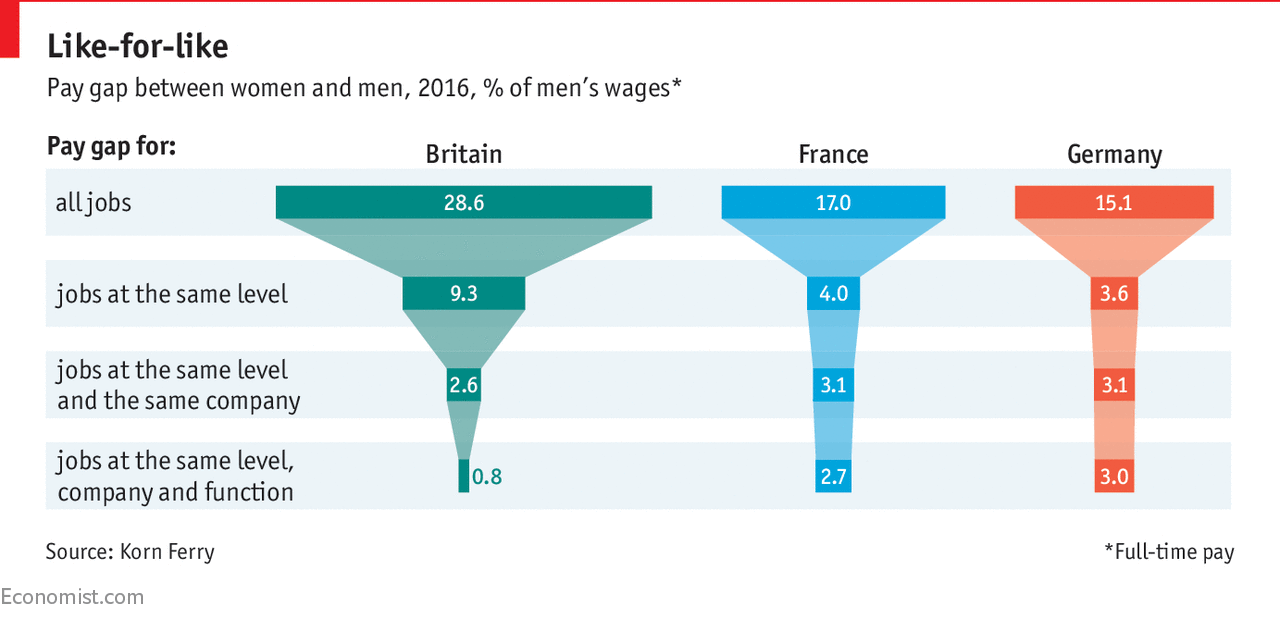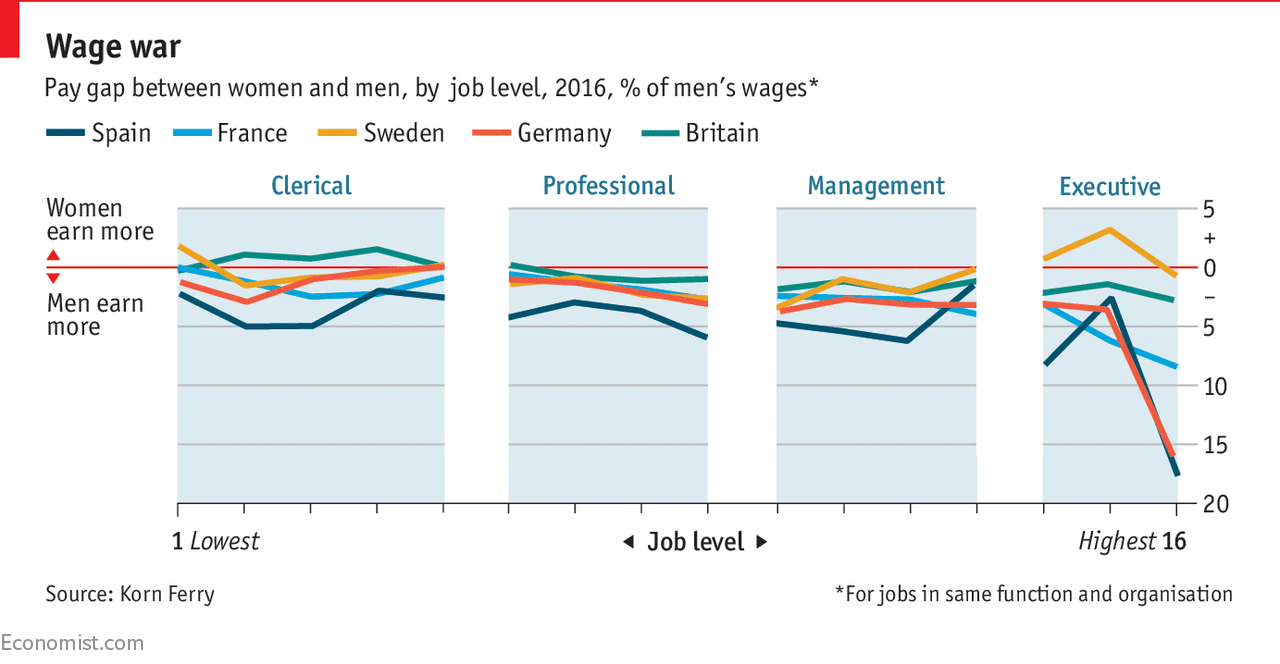
MEDIA organisations aspire to cover news, not make it. But the BBC, Britain’s public broadcaster, has found itself in an uncomfortable spotlight since July 19th, when it published the names of its employees who earn at least £150,000 ($195,000) a year. The ensuing furore was less over the absolute level of pay than about the differences between men’s and women’s incomes. Some female presenters discovered that they made much less than male colleagues they regarded as peers. Just over half of the BBC’s staff are men, but among the 96 high earners listed, two-thirds are male.
In a petition, female presenters said this was evidence that women at the BBC are paid less than men “for the same work”. If that were true for the company as a whole, it would make the BBC an outlier. Although the average woman’s salary in Britain is 29% lower than the average man’s, the bulk of that gap results from differences in rank within companies, firms’ overall compensation rates and the nature of the tasks a job requires. According to data for 8.7m employees worldwide gathered by Korn Ferry, a consultancy, women in Britain make just 1% less than men who have the same function and level at the same employer. In most European countries, the discrepancy is similarly small. These numbers do not show that the labour market is free of sex discrimination. However, they do suggest that the main problem today is not unequal pay for equal work, but whatever it is that leads women to be in lower-ranking jobs at lower-paying organisations.

Moreover, even if the bulk of the BBC’s 9,000 female employees are not underpaid relative to their male colleagues, the list does suggest a problem among the broadcaster’s top brass. That pattern is fairly common. Pay gaps between men and women in the same roles at the same employers are narrow across Europe for 15 of the 16 job levels in Korn Ferry’s database—but the highest one is the exception. In Spain and Germany, top-ranking women make 15-20% less than similarly high-flying men.
A new law in Britain requires all medium-to-large employers to publish data on the pay gap between their male and female workers by April 2018. The reactions to the BBC’s list suggest they would be wise to break these data down for comparable jobs. That will show more precisely where the problem lies.
Read the full article [here.](http://www.economist.com/news/busin...ge-gap-between-men-and-women-varies-depending)




